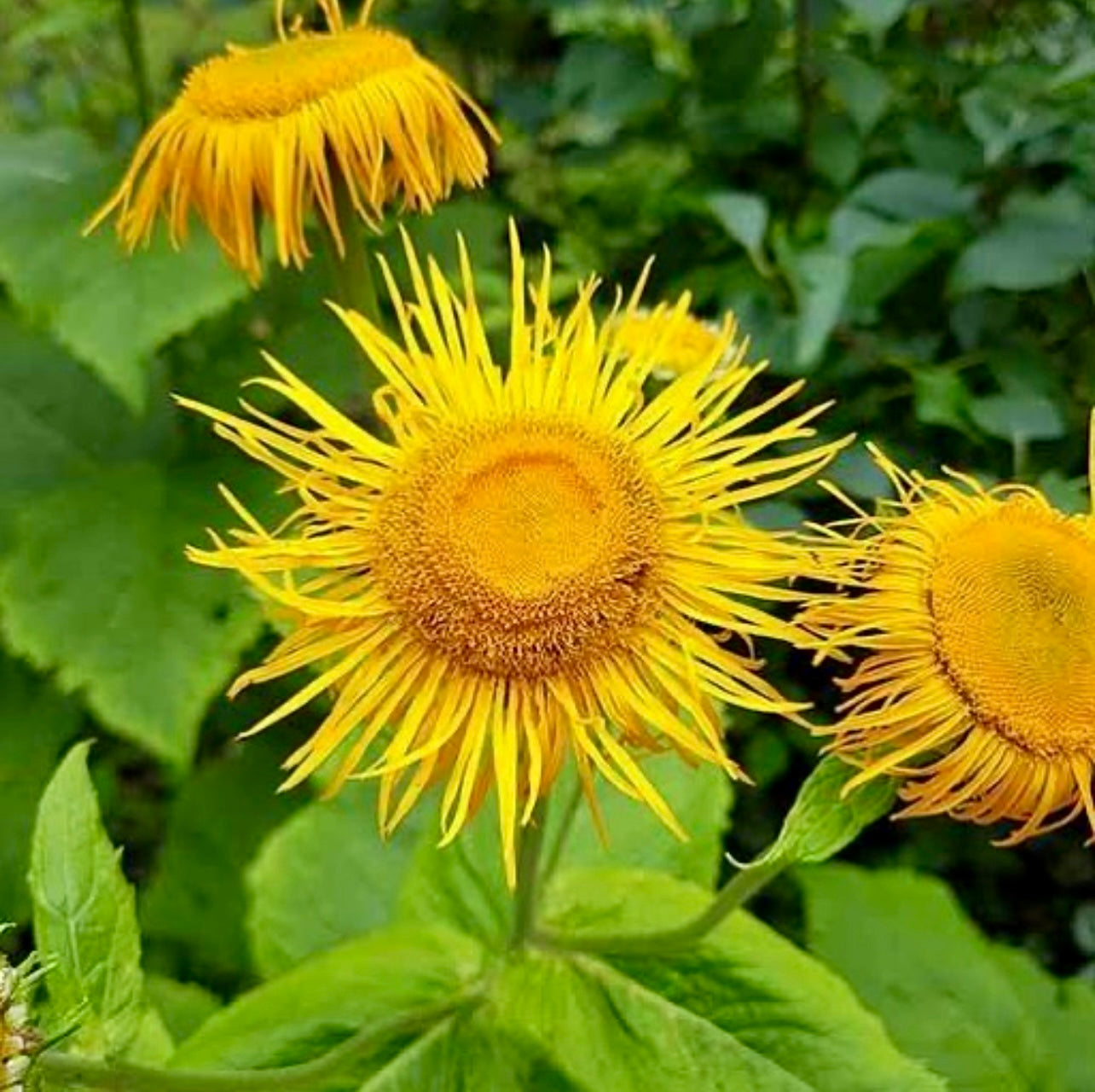Elecampane (Inula helenium)
Elecampane (Inula helenium)
Couldn't load pickup availability
Why We Grow It
Why We Grow It
Elecampane is a valuable addition to food forests and ecological systems due to its multifunctionality. Its deep roots enhance soil structure and drainage, while its blooms support pollinators. The medicinal roots can be harvested sustainably, providing health benefits and additional uses for the homestead. As a hardy, low-maintenance plant, Elecampane is ideal for adding resilience and biodiversity to sustainable landscapes
How the Plant Grows
How the Plant Grows
Elecampane grows as a robust perennial with large, rough leaves and tall stems topped with golden-yellow, daisy-like flowers. It blooms in mid to late summer, providing a splash of color and attracting pollinators. The plant’s deep, thick roots anchor it firmly in the soil, allowing it to thrive in challenging conditions. Elecampane is low-maintenance, requiring little care beyond occasional watering during dry spells
Plant Size
Plant Size
Size at Maturity- 4-6 feet tall and 3-4 feet wide
Current Size- 2 Root eyes.
Additional Info
Additional Info
Elecampane has a rich history in traditional herbal practice, particularly in Europe and Asia, where it has been used for centuries to treat respiratory ailments such as bronchitis and asthma. The root is rich in inulin, a prebiotic fiber beneficial for digestive health. Its showy flowers not only add visual appeal but also attract pollinators like bees and butterflies. Elecampane is highly valued in permaculture for its deep roots, which help break up compacted soil and improve drainage, contributing to soil health.
Elecampane is an easy to grow perennial herb, revered for its medicinal properties and ornamental value. Known for its tall stature and bright yellow, sunflower-like blooms, this hardy plant is great to add to your living medicine cabinet. Its deep, aromatic roots are traditionally used in natural remedies, particularly for respiratory health. A versatile addition to any garden or food forest, Elecampane is both beautiful and functional.
Share

Plant Highlights
-

Water
Requires consistent moisture but tolerates occasional dry periods once established.
-

Pollination
Attracts bees and other pollinators; self-pollinating
-

Soil
Thrives in moist, well-drained soils; prefers loamy or sandy soil with a slightly acidic to neutral pH. We've grown it in average dry sites and its done great.
-

Years to Bear
Root divisions can produce flowers first year. Second year roots are ideal to harvest.
-

Hardiness
Zones 3-8, tolerating temperatures as low as -40°C
-

Solar
Prefers full sun but can tolerate partial shade
Subscribe to our emails
Lots of Free Growing Info. Be the first to know about new plants and exclusive discounts.







